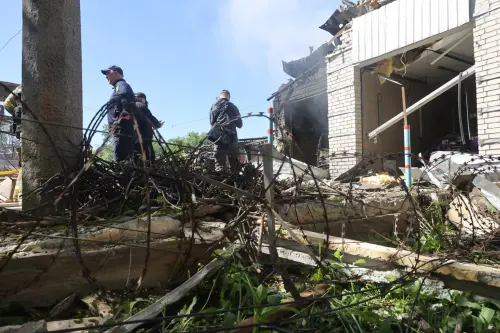George Bush’s decision to invade Iraq was a strategic gamble of historic proportions. He has vowed not just to unseat a ruthless dictator and destroy his weapons of mass destruction but also to bring democracy to the Iraqi people.
Now he and his coalition partners have to deliver on his promise.
It won’t be easy. An immediate problem is that Saddam Hussein’s government did not collapse as predicted like a “house of cards.”
The result might be a capital city in ruins and thousands of casualties. That is hardly an auspicious way to win the hearts and minds of the Iraqi people.
The deeper problem is that Iraqis have many reasons to doubt Bush’s sincerity. Washington made it a habit over the years to enlist Kurdish support against tyrants in Baghdad and then reverse course. The first Bush administration abandoned the Shia in 1991 after inciting them to revolt against Hussein’s rule.
Suspicions are rampant that the US is more interested in liberating oil supplies than oppressed people.
The image of invading Christian forces subjugating a Muslim population stirs resentment and could inflame religious passions.
Washington’s support over the years for autocratic Arab leaders further fuels cynicism.
Truth be told, Bush set the bar too high in promising to bring democratic government to Iraq. Iraq almost certainly will not be a democracy, as Australians and Americans understand the word, anytime soon.
Decades of tyrannical rule pitted ethnic, religious and tribal groups against one another. To suggest that overcoming that bitter legacy will be easy is to deny history.
Still, the war and the reconstruction that follows could leave the Iraqi people far better off than they were under decades of brutal rule. That is not a pipe dream. Look at Kuwait, Bosnia, Kosovo and Afghanistan.
None of these countries constitutes the democratic ideal. But all four are better off today and have reasonable prospects for a better future because of military interventions by US and allied forces.
Just as important, the populations of Kuwait, Bosnia, Kosovo and Afghanistan are predominantly Muslim.
That gives lie to the suggestion that the religious faith of the Iraqi people somehow condemns them to a future of repression or chaos.
The cynicism that pervades the speculation about Washington’s motives also obscures reasons to be optimistic about Iraq’s potential.
It has a well-educated population familiar with modern economic life. Its vast oil supplies give it the wealth to finance its own development.
The success of the autonomous Kurdish regions in the north provides a glimpse of what Iraq is capable of becoming.
The best guarantee the Iraqi people have of Bush’s commitment to help them build a new future is the very fact that he was so unequivocal in his pledge to them.
The political pressure on the White House to make credible progress on its promise will be intense. The fear of the consequences to American security if the effort to reconstruct Iraq fails reinforces that pressure.
Does this mean that the Bush administration won’t make mistakes in its reconstruction policy or need to be hectored by its allies to keep its word? No. Infallibility does not reside at 1600 Pennsylvania Avenue.
What it does mean is that this war can give Iraqis a chance to build a new future for themselves. After the terror they have known under Hussein, that is not something to be dismissed lightly.



Commentary
Op-edIn All That Rubble Are Fences To Mend and Bridges To Build
April 5, 2003